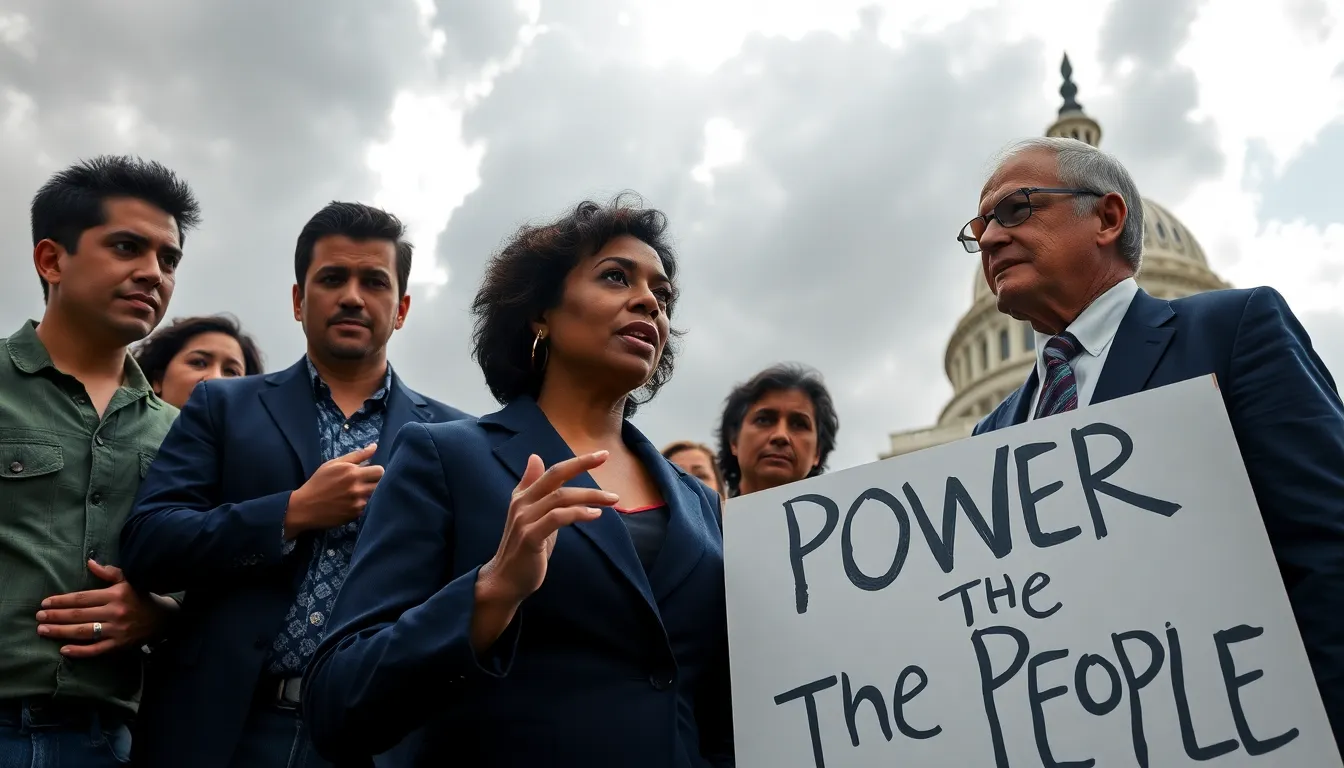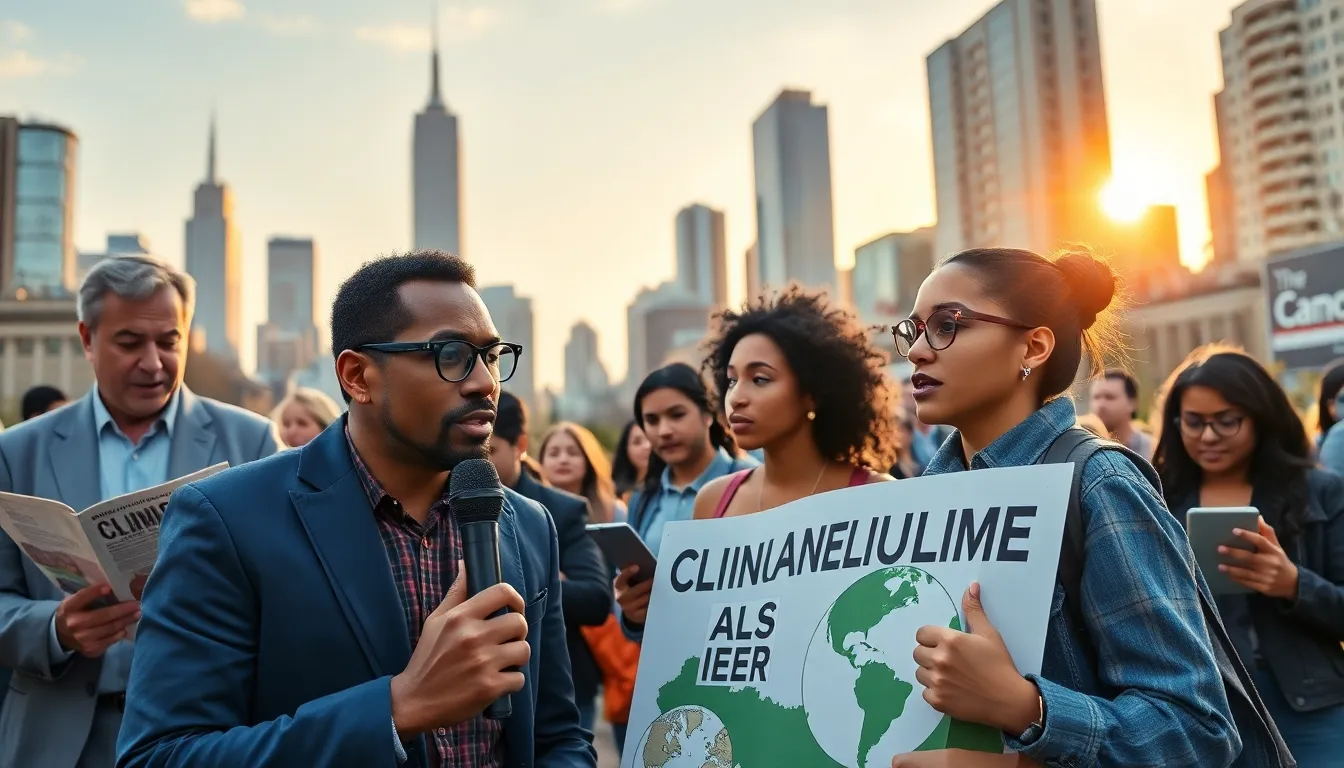In today’s fast-paced global landscape, staying updated on current events is essential. The realm of world news encompasses an array of topics, from political shifts and economic trends to pressing environmental issues and cultural transformations. In the following sections, we will investigate into the most notable developments shaping our world, offering insights that highlight their significance and implications.
Table of Contents
ToggleRecent Developments in Global Politics

Political dynamics worldwide have been tumultuous over the past year, with various countries experiencing significant changes. In the United States, the ongoing discourse surrounding governance and partisan divides continues to affect public policy and international relations.
Across the Atlantic, Europe faces challenges with Brexit’s lasting impacts on trade agreements and immigration policies. Countries such as France and Germany have re-evaluated their positions within the EU, striving to maintain cohesion amidst growing nationalism and economic disruptions.
Further south, the shifting political landscape in Latin America has drawn attention. With elections approaching in several nations, the focus has been on candidates’ stances on corruption, economic recovery, and social justice. For instance, Brazil’s upcoming elections could further influence its role in regional diplomacy and environmental protection efforts in the Amazon.
Similarly, in Asia, the power struggle involving major players such as China and India continues to unfold. Recent territorial disputes have heightened tensions, prompting discussions on military readiness and diplomacy in a multipolar world.
Major Economic Trends Influencing Global Markets
The global economy is currently experiencing multifaceted trends that significantly influence market stability and growth. One of the most pressing issues is inflation, which remains high in various regions due to post-pandemic supply chain disruptions and fluctuating energy prices. Central banks, most notably the Federal Reserve, have implemented measures to curb inflation, impacting interest rates around the globe.
Emerging markets also face their own economic challenges, with countries like Turkey battling currency instability. The impact of these economic trends is not just localized: they generate ripples that affect global trade relations, investment opportunities, and consumer confidence.
Investors increasingly turn their attention to sustainable markets as a means of contributing to long-term economic health. Renewable energy sectors have seen significant investments, reflecting a global shift toward sustainable practices.
Plus, the rise in cryptocurrency adoption has sparked debates over regulation and its influence on traditional bank systems, indicating a paradigm shift in financial transactions worldwide.
Environmental Issues Causing International Concern
Environmental challenges have entered the global conversation with an urgency that can no longer be ignored. Climate change remains at the forefront, with extreme weather events becoming more frequent and severe. This has led to increased advocacy for climate action, with various international agreements aiming for robust commitments to reduce carbon emissions.
The aftermath of natural disasters has prompted discussions around disaster relief and preparation. For instance, recent hurricanes and wildfires have highlighted the need for effective emergency responses and climate resilience strategies.
International cooperation is essential to address issues like plastic pollution, deforestation, and biodiversity loss. Non-governmental organizations and grassroots movements are mobilizing efforts to push for sustainable practices among governments and corporations alike, emphasizing the connectedness of environmental systems across borders.
Cultural Shifts and Social Movements
Cultural dynamics are continually evolving, reflecting deeper societal values and challenges. The rise of social movements, particularly those advocating for racial equality and gender rights, has seen a surge in international solidarity, prompting changes in legislation and societal norms.
Grassroots initiatives have been pivotal in highlighting issues such as police reform and systemic inequality, bringing voices from various communities to the forefront. The Black Lives Matter movement, for example, has spurred global conversations about race and justice, inspiring similar movements worldwide.
Also, LGBTQ+ rights have gained significant traction, with more countries recognizing same-sex marriage and implementing anti-discrimination laws. The visibility of these movements has sparked dialogues about cultural acceptance and the rights of minorities, showcasing the progress made and the work that still lies ahead.
Technological Advances Shaping Global Communication
Technological innovation continues to redefine global communication, influencing how information is shared and consumed. The rise of social media platforms has transformed traditional news consumption, creating more immediate channels for information dissemination.
But, this shift poses challenges about misinformation and data privacy. Navigating these complex issues is crucial for maintaining public trust in news sources. Many governments and organizations are seeking to establish regulations that balance free speech with the need for accurate information.
Also, the advent of artificial intelligence and machine learning is reshaping communication strategies. Businesses are leveraging these technologies to enhance customer interactions, personalize marketing efforts, and improve service delivery. As technology continues to advance, its role in global communication will only grow more significant, necessitating ongoing discussions about ethics and responsibility.
The Future Outlook for Global Affairs
Looking ahead, the outlook for global affairs is poised between optimism and uncertainty. As nations navigate the complexities of geopolitics, economic recovery, and social change, collaborative efforts will play a crucial role in addressing shared challenges. The push for sustainability and technological advancement suggests a potential for growth and innovation in tackling issues like poverty, inequality, and environmental degradation.
But, the potential for conflict remains. Nationalism and protectionism could hinder global cooperation, complicating efforts to establish an inclusive, interconnected world. It is crucial for leaders and citizens alike to foster dialogue and build bridges rather than barriers in addressing the multifaceted challenges ahead.
Conclusion
Summarizing, the landscape of world news is characterized by a variety of intricate issues that demand attention. From geopolitical shifts and economic trends to environmental crises and cultural revolutions, each facet plays a significant role in shaping the global narrative. As individuals and nations alike navigate these developments, the importance of staying informed and engaged cannot be overstated. Monitoring these trends not only fosters understanding but also encourages active participation in the collective journey toward a brighter, more equitable global future.





